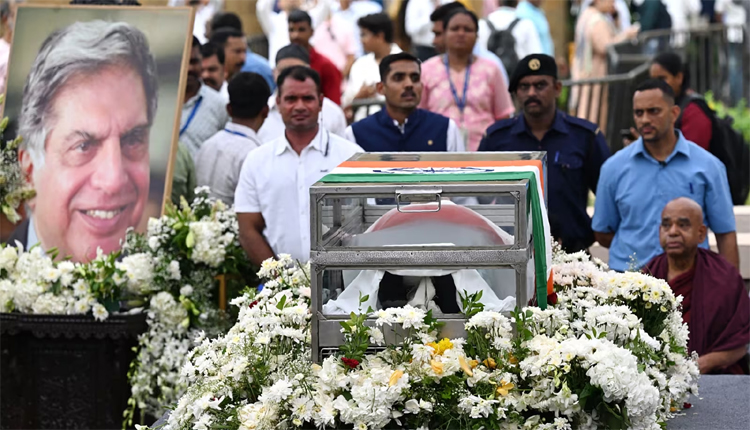Mumbai: Ratan Tata, the revered industrialist and philanthropist, passed away late Wednesday night, leaving the nation in shock and mourning. His immense contributions to the country have garnered him deep respect from people across India, and following his demise, there is a growing call to honour him with the Bharat Ratna, India’s highest civilian award.
The Shiv Sena party has formally requested this recognition. Rahul Kanal, a leader within the party, wrote to Maharashtra Chief Minister Eknath Shinde, urging him to propose Ratan Tata’s name for the Bharat Ratna award to the central government.
The Bharat Ratna is awarded to individuals for exceptional service in any field, without discrimination based on caste, profession, position, or gender. Established in 1954, the first recipients were C. Rajagopalachari and Sarvepalli Radhakrishnan, while Indira Gandhi became the first woman to receive the award.
While the Bharat Ratna can be awarded to living individuals, there have also been posthumous honours. The first recipient to receive the award after death was Lala Lajpat Rai. Other notable figures who were posthumously awarded the Bharat Ratna include Karpuri Thakur, Chaudhary Charan Singh, M.S. Swaminathan, Sarvepalli Radhakrishnan, B.R. Ambedkar, Maharshi Dayanand Saraswati, and Rajkumar Sanyal, among others, bringing the total to 18 individuals.
The purpose of awarding the Bharat Ratna posthumously is to acknowledge the contributions of those who are no longer living, yet whose actions and thoughts have significantly impacted society. This recognition serves as a means to honour their legacies and inspire future generations.
Receiving the Bharat Ratna is not just a moment of pride for the recipient but also for their families and society at large. This prestigious award is an integral part of India’s heritage and plays a vital role in the nation’s cultural and societal evolution.
As the nation reflects on Ratan Tata’s lasting legacy, the demand for the Bharat Ratna in his honour continues to grow, underscoring the profound impact he has had on Indian society and industry.



Comments are closed.